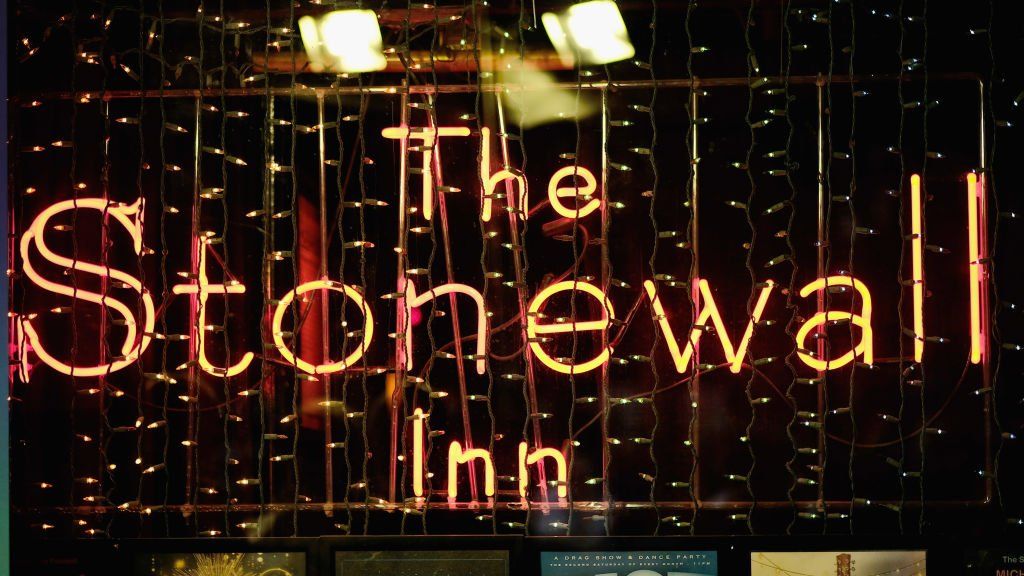Stonewall riots: 50 years on from the riots that changed gay rights history
- Published
- comments

It's the 50th anniversary of the Stonewall riots, which helped spark the fight for gay rights around the world.
During the 1960s, being gay was classified as a mental illness in the US. Gay people were regularly threatened and beaten by police, and were shunned by many in society.
But the Stonewall riots in 1969 were a landmark event in history, which helped to fight homophobia and campaign for equal rights.
What happened?
On 28 June 1969, police raided the Stonewall Inn - a bar in the gay area of New York, US.
It was the second time that week the police had raided it. They threw 200 people out onto the streets and beat some people.
The gay community were angry about the way they were being treated by the police, so they chose to fight back.
This event triggered a week of protests and rioting by people from the gay community, who were fed up of being harassed by the authorities.
News of the riots spread around the world, and this inspired others to join protests and rights groups to fight for equality.
A month after the riots, the first openly gay march took place in New York, demanding equality.
How has it changed gay rights?
WATCH: 17-year-old Megan visited her uncle at one of Britain's biggest Pride festivals in Manchester
After the Stonewall protests happened, the first Pride festival officially took place in the UK in 1972.
Around 2,000 people turned out for the event back then. But now, more than a million celebrate the event every year in London.
The charity Stonewall was founded in the UK in 1989, named after the bar which sparked the famous riots.
It works to fight inequality and homophobia, and campaigned to overturn the Section 28 law, which prevented teachers from talking about gay relationships at school in the UK.
It became illegal to encourage homophobic hatred in 2008.
WATCH: Find out more about the rainbow flag - a symbol of gay pride all over the world
In 2013, gay marriage became legal in in England and Wales, and then later in Scotland. In Northern Ireland, gay marriage is not allowed.
In 2017, Peter Tatchell - a gay rights campaigner - told Newsround: "We have made fantastic progress. Compared to two decades ago, Britain is almost a different country. All the main anti-gay laws have been abolished. We are now one of the best countries in the world for gay equality."
"Public attitudes are much more supportive, although there are still families who reject their gay children. We still have too much homophobic hate crime, many kids are still bullied and a lot of schools don't have an anti-bullying programme that specifically addresses anti-gay issues.
"There is big progress, but more needs to be done."
- Published10 June 2022
- Published24 May 2019
- Published17 May 2019
